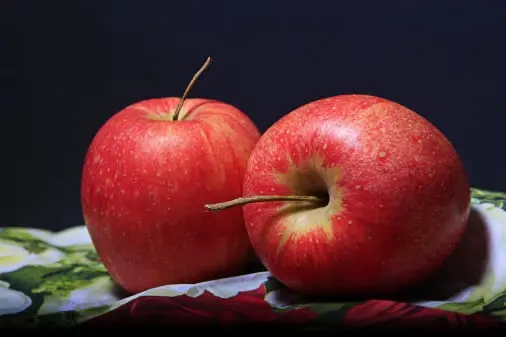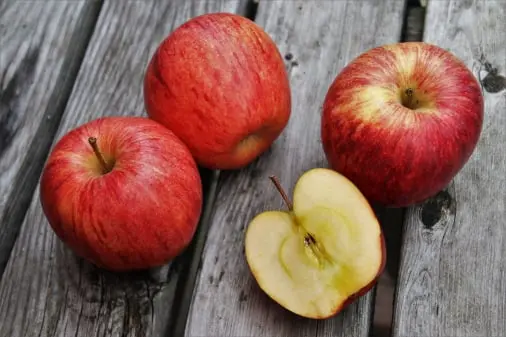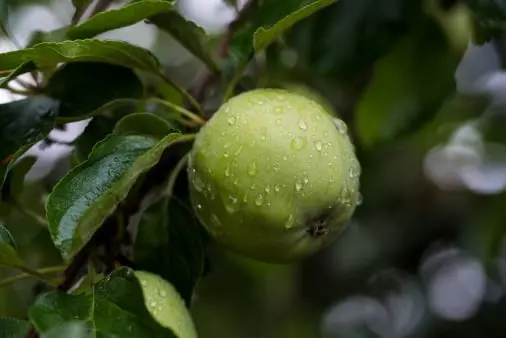Apple traceability app:
Apple traceability app manages app packing processes and entire apple pack house; easy apple traceability, apple inventory, sales & shipping. Apple recalls and audits, apple quality control.

Apple Traceability during production & packing
View Traceability App Specifications.
Legal requirements and consumer demands have motivated the development and application of traceability technology. Farming practices are the starting point of the agri-food supply chain and the destination of the agri-food traceability system (AFTS). The amount of resource information and the complexity of the production process of agri-food become the main obstacles to the wide application of AFTS. This study introduces an integrated machine-to-machine system that allows collecting field operation information automatically. This system includes an IoT-based integrated hardware system, a smart farm cloud (SFC) platform, and a mobile application, which accomplished the collection, upload, and storage of operation information. This system had been used in “BSD” organic apple orchard in Qixia, Shandong Province, China for about one year. The effectiveness of the system was evaluated by managing 270 apple trees in one plot of the orchard. Finally, a label with a QR code was successfully generated to provide consumers to query traceability information from a single tree to a fruit tray. This work was a background of a blockchain traceability system. Moreover, the future extendibility of the system was also discussed and prospected.

Apple packhouse hygiene checklist for food safety
Fresh Fruit supply chains are undergoing a massive transformation globally. The major drivers are stringent regulatory requirements and competitive strategy, triggered by the demands of food safety and transparency by the end consumer. Check how blockchain traceability solutions bring trust, transparency and visibility in the fruit supply chains.
Newton Orchards is now able to connect with its end consumers directly, launching a marketing campaign that raises awareness of the Newton Orchards brand while implementing DiMuto’s SMART marketing services to communicate its from farm to table traceability story to consumers in Australia.
DiMuto’s QR code-driven SMART marketing services are a cost-effective solution for reaching end consumers and communicating traceability brand stories from farmers and producers.
About Newton Orchards A key Western Australia orchard, Newton Orchards of Manjimup is a family owned and operated business for over 90 years and four generations. Over the years, it has grown to one of the most trusted fruit growers in Australia.
Has a fruit derivative beverage line of ciders and juices to reduce food waste
Grows a wide variety of crops, such as apples, pears, and cherries
Supplies fresh produce to major retail supermarkets such as Coles and Woolworths.
Industry: fresh produce
Location: Manjimup, Western Australia
Dimuto’s Results
DiMuto Digital Asset Creation (DAC) and the trading platform provided trade traceability that helped provide complete supply chain visibility
SMART marketing solutions helped engage end consumers and strengthen the Newton Orchard brand

Apple Traceability management best practices
The apple is one of the most important fruits in the world, with 87,236,221 tonnes produced per year. China (54%) and the European Union (EU) (15%) are the main consumers of fresh apples. Due to the high production, globally, the apple crop produces ~4 million tons of waste a year, and juice production is one of the most developed industrial sectors able to absorb apple waste [1]. Among all of the fruit juices, apple juice is second in the market in terms of the global demand for flavor [2].
The quality and authenticity of apple juice are elements of primary importance. Actions such as dilution with water, the addition of sugars or organic acids and replacing or mixing the juice with a cultivar of lower value, or of lower quality from an organoleptic point of view, are economic adulteration. They can compromise the image of the product itself, as well as cause damage to the consumer and the market. The authenticity of fruit materials becomes a serious problem when juices and related items are in short supply or are very expensive.
The fruit content, viscosity, color, browning index and natural flavor are some of the parameters used to evaluate the suitability of fruit juice, but the origin of the raw material (e.g., the cultivar, geographical origin and production mode, such as organic) and the type of processing (industrial or artisanal from a short supply chain) can influence the expectation of consumers, also affecting their attitude to purchase and consume. Among the different analytical techniques able to evaluate and detect the different causes of adulteration (e.g., the addition of or dilution with water, the addition of sugar or acidifying agent adulterants, the adulteration of freshly squeezed juice with concentrated fruit juice), DNA-based methods are largely employed, since DNA can also be recovered in enough quality and quantity in heavily processed food matrices [3,4]. Molecular marker-based methods have been found to be particularly effective in the identification of several crops used in the industry.

Apple Supplier Traceability Management
Just in time for China’s major annual e-commerce shopping event, Chinese consumers can benefit from a pilot program on Alibaba’s Tmall ecommerce platform to scan and verify the authenticity of Washington apples with their mobile phones.
A recent shipment of specially labeled apples from Washington state was among the first fresh fruits to be added to Alibaba’s “Blue Star” (Mantianxing) traceability and authentication program.
Blue Star, which was rolled out in May of this year starting with cosmetics and other consumer goods, employs two-dimensional “QR” bar codes to label each individual goods with a unique serial number. When consumers scan the QR code using one of Alibaba’s ecommerce apps, the serial number is encrypted and sent to Alibaba’s servers to be compared against a central database.
The system poses a serious hurdle for would-be counterfeiters, Blue Star Project Manager Liu Yang told Produce Report. “If the same QR code is scanned repeatedly and in different locations, the system will flag it as a possible case of counterfeiting, thereby blocking the online and offline sale of fake products,” said Liu.
Liu said that Alibaba is now implementing the scheme on Tmall’s Miaoxiansheng fresh goods channel, starting with Washington apples and a Chinese citrus brand, Chuyou—with more fresh goods such as cherries and avocados from Chile set to be added in the future.